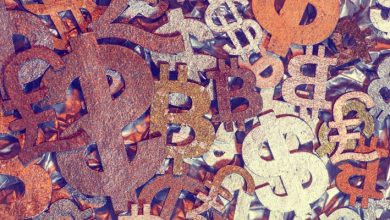How to Secure Your Crypto Assets: A Comprehensive Guide

- Understanding the importance of securing your crypto assets
- Best practices for keeping your crypto assets safe
- The common threats to your crypto assets and how to protect against them
- Choosing the right wallet for storing your crypto assets
- Tips for creating strong passwords and keeping them secure
- What to do in case your crypto assets are compromised
Understanding the importance of securing your crypto assets
Cryptocurrency is a valuable asset that requires careful protection to prevent unauthorized access and potential loss. Understanding the importance of securing your crypto assets is crucial in today’s digital age. By taking proactive measures to safeguard your investments, you can mitigate the risk of theft and fraud.
There are various ways to secure your crypto assets, including using hardware wallets, setting up two-factor authentication, and practicing good security hygiene. It is essential to stay informed about the latest security threats and best practices for protecting your digital assets. By staying vigilant and proactive, you can minimize the risk of losing your hard-earned money.
Remember that once a transaction is completed on the blockchain, it cannot be reversed. This means that if your crypto assets are stolen, there may be little recourse for recovering them. By taking the necessary precautions to secure your investments, you can avoid becoming a victim of cybercrime and financial loss.
Best practices for keeping your crypto assets safe
When it comes to safeguarding your digital assets, it is essential to follow best practices to ensure their security. Here are some tips to help you keep your crypto assets safe:
First and foremost, it is crucial to use a secure wallet to store your cryptocurrencies. Look for wallets that offer advanced security features such as two-factor authentication and multi-signature options. Additionally, consider using hardware wallets for an extra layer of protection.
Another important step is to regularly update your wallet software to the latest version. Software updates often include security patches that can help protect your assets from potential threats.
It is also recommended to use unique and complex passwords for your wallet and exchange accounts. Avoid using the same password across multiple platforms, as this can increase the risk of unauthorized access.
Furthermore, be cautious of phishing scams and fraudulent websites that may try to steal your login credentials. Always double-check the URL of websites and only enter your information on trusted platforms.
When making transactions, double-check the recipient’s address to ensure accuracy. Cryptocurrency transactions are irreversible, so it is crucial to verify the recipient’s address before sending any funds.
Lastly, consider enabling additional security measures such as biometric authentication or email notifications for account activity. These extra layers of security can help prevent unauthorized access to your crypto assets.
By following these best practices, you can better protect your digital assets and minimize the risk of security breaches or loss. Stay vigilant and proactive in securing your crypto assets to enjoy peace of mind in the ever-evolving digital landscape.
The common threats to your crypto assets and how to protect against them
When it comes to securing your crypto assets, there are several common threats that you need to be aware of in order to protect your investments. By understanding these threats and taking proactive measures, you can safeguard your assets and minimize the risk of falling victim to malicious actors.
- Phishing Attacks: Phishing attacks are one of the most common threats to crypto assets. Cybercriminals use deceptive emails, websites, and messages to trick individuals into revealing their private keys or passwords. To protect against phishing attacks, always double-check the URLs of websites and never click on suspicious links.
- Malware: Malware is another significant threat to crypto assets. Malicious software can infect your devices and steal your private keys, making it easy for hackers to access your funds. To protect against malware, make sure to use reputable antivirus software and keep your devices up to date.
- Social Engineering: Social engineering attacks involve manipulating individuals into divulging confidential information. Hackers may impersonate trusted individuals or organizations to gain access to your crypto assets. To protect against social engineering attacks, always verify the identity of anyone requesting sensitive information.
- Exchange Hacks: Exchange hacks are a major threat to crypto assets, as centralized exchanges are often targeted by hackers. To protect against exchange hacks, consider using decentralized exchanges or cold storage options to store your assets securely.
By being aware of these common threats and taking proactive steps to protect your crypto assets, you can minimize the risk of falling victim to malicious actors and ensure the security of your investments.
Choosing the right wallet for storing your crypto assets
When it comes to securing your crypto assets, choosing the right wallet is crucial. There are several types of wallets available, each with its own pros and cons.
One option is a hardware wallet, which is considered one of the most secure ways to store your crypto assets. These wallets are physical devices that store your private keys offline, making them less vulnerable to hacking.
Another option is a software wallet, which is a digital wallet that can be accessed through an app or website. While these wallets are convenient, they are more susceptible to cyber attacks.
You can also consider using a paper wallet, which involves printing out your private keys and storing them in a secure place. This method is highly secure as long as you keep the paper safe from damage or theft.
Ultimately, the best wallet for you will depend on your individual needs and preferences. It’s important to do your research and choose a wallet that provides the right balance of security and convenience for you.
Tips for creating strong passwords and keeping them secure
When it comes to securing your crypto assets, creating strong passwords and keeping them secure is crucial. Here are some tips to help you protect your investments:
- Use a mix of uppercase and lowercase letters, numbers, and special characters in your password to make it harder to guess.
- Avoid using easily guessable information such as your name, birthdate, or common words as part of your password.
- Do not reuse passwords across different accounts. Each account should have a unique password to prevent a security breach on one account from affecting others.
- Consider using a password manager to securely store and manage your passwords. This can help you generate strong, unique passwords for each account without needing to remember them all.
- Enable two-factor authentication (2FA) whenever possible. This adds an extra layer of security by requiring a second form of verification in addition to your password.
What to do in case your crypto assets are compromised
If your crypto assets are compromised, it is vital to act quickly and decisively to minimize any potential losses. Follow these steps to help secure your assets and prevent further damage:
1. **Assess the Situation**: The first thing you should do is determine the extent of the compromise. Check your account balance, transaction history, and any other relevant information to understand what has happened.
2. **Secure Your Accounts**: Change your passwords immediately and enable two-factor authentication on all your crypto exchange accounts. This will add an extra layer of security and make it more difficult for hackers to access your assets.
3. **Contact Support**: Reach out to the customer support team of the exchange where your assets are held. Inform them of the situation and ask for their assistance in securing your account and investigating the breach.
4. **Report the Incident**: If you suspect that your assets were stolen due to a security breach on the exchange’s end, report the incident to the relevant authorities. This will help prevent similar incidents from occurring in the future.
5. **Monitor Your Accounts**: Keep a close eye on your accounts and transactions to detect any suspicious activity. If you notice anything out of the ordinary, report it to the exchange immediately.
By following these steps, you can take proactive measures to secure your compromised crypto assets and prevent further losses. Remember, acting quickly is key when it comes to protecting your investments in the volatile world of cryptocurrency.



